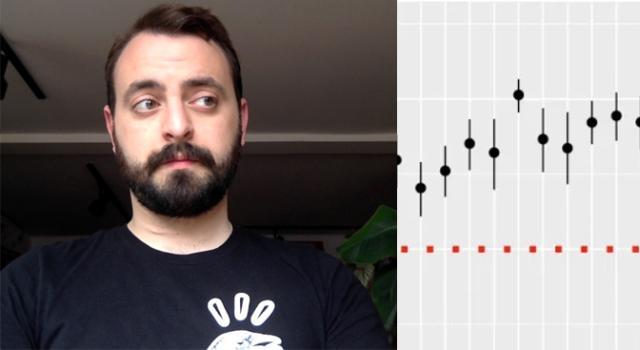Professor Ethan Meyers and UMass Colleagues Win National Science Foundation Grant to Study Brain Function
An interdisciplinary team of researchers from UMass and Hampshire, among them Assistant Professor of Statistics Ethan Meyers, was recently awarded a four-year, $953,000 grant from the National Science Foundation (NSF) as part of a nationwide initiative to study deep-brain function for new insights into neural and cognitive systems. The research aims to develop new methods with potential application to diseases that affect neuromotor control, such as Parkinson’s and Huntington’s. The five-member team, which includes four researchers at UMass, where the project is based, merges expertise in data science, cognitive neuroscience, and hardware engineering.
After implanting tiny hardware into the brains of rats and mice, the team will both record and control their movements, observing how the brain functions at a cellular level when animals are in motion and deciding, for example, to move to the left or to the right. The team will trace complex animal behaviors down to groups of individual neurons.
Professor Meyers will analyze the animals’ activity in real time using algorithms he’s created.
“I work a lot in collaboration with neuroscientists. They collect data and I use statistical methods and machine learning to analyze it,” says Meyers. “In this study, we hope to ultimately understand more about neuromotor function at a cellular level. We’re using implantable devices that can not only measure but also manipulate neural activity from many cells simultaneously.”
As part of the project, the team will work with support groups for people with neurological diseases, as well as senior centers in Amherst, Northampton, and Belchertown, in order to present information about cutting-edge progress in brain science.
Meyers and his UMass collaborators comprise one of 18 cross-disciplinary teams across the country that will receive a total of $16 million from the NSF to advance the frontiers of foundational research in cognition as part of two coordinated investigative efforts, Understanding the Brain and the BRAIN Initiative.
The Hampshire/UMass project, “Optoelectronic tools for closed-loop neuron ensemble recording and control during complex behaviors,” reflects the type of deep-brain studies Meyers has conducted with neuroscientists since earning his PhD from the Massachusetts Institute of Technology in 2010.
He still conducts research in collaboration with MIT’s Center for Brains, Minds, and Machines — an NSF-funded science and technology center where he conducted postdoctoral research — which focuses on developing a computationally based understanding of human intelligence and cognition and brings together computer scientists, cognitive scientists, and neuroscientists.



